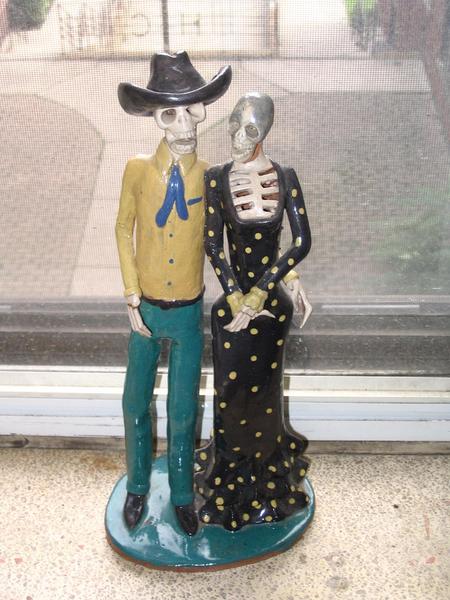A Skull in the Roots
I've lived in Toronto for the past 9 years. Before that came Brooklyn, and before that was Seattle. Both of those were five year stints, which means only Albuquerque, that scrappy outpost where I was born and raised, has been home to me for a longer period of time.
My wife and I had gone to a few early Trampoline Hall events, so we knew there was some fun literary-ish events held around town. Obviously, there is a lot of music stuff to get excited about around here, and Liz Worth's stuff played right into my endless need for tales of bad music played for bad people.
I know that doesn't make me well-traveled. Not by a long shot. At most, it might give an indication of what kind of fun I was intent on pursuing throughout my twenties. Had I been a bit more savvy, I'm sure I could have found that same kind of fun in any number of more affordable locales. But what did I know? I felt like I was flying blind a lot of the time, often impulsively moving from place to place in the hopes of finding... what? Something new? Something different? I doubt I could have explained what was driving me back then.
But looking back on it now, it's easy to see that my youthful restlessness ultimately prepared me for really falling in love with where I ended up. I've often told people that Toronto is a great blend of northeastern and northwestern experiences - it's dense, diverse, gritty and urban on the one hand, yet liveable, relatively green and easygoing on the other. And still capable of harboring a surprise or two as well, as I would soon find out.
Just after my daughter was born, I came across a used copy of The Damnation Game, Clive Barker's debut novel based (to some extent at least) on Faust, in one of the many used book stores on Yonge Street. I was surprised to find myself reconnecting with the book's power to both frighten and inspire. It convinced me to dig up some old story outlines and, for the first time in my adult life, actually try to put a novel together.
As I started to gather my thoughts, I also tried to get a sense for what my local writing environment looked like. I was aware that the city's public library system had a branch with an amazing horror, sci-fi and fantasy collection. But I'd never been motivated enough to actually check it out.
My wife and I had gone to a few early Trampoline Hall events, so we knew there was some fun literary-ish events held around town. Obviously, there is a lot of music stuff to get excited about around here, and Liz Worth's stuff played right into my endless need for tales of bad music played for bad people.
By then I'd discovered Andrew Pyper's work and was amazed to find that "dark fiction" had slowly bled into the mainstream market again. Not long after, I came across the ChiZine site and had my brains blown right out of my head. Gemma Files! David Nickle! A consortium of weirdos! And many of them locals! Not to mention the venerable Rue Morgue, which just happens to be a short walk from my very own front door.
I had no idea all this was here, just waiting for me to stumble over it when I was (finally) ready to get off my ass and roll up my sleeves. Something must be in the air, and I finally feel like I might be in the right place at the right time.
(With lots of homework to catch up on in the meantime.)

